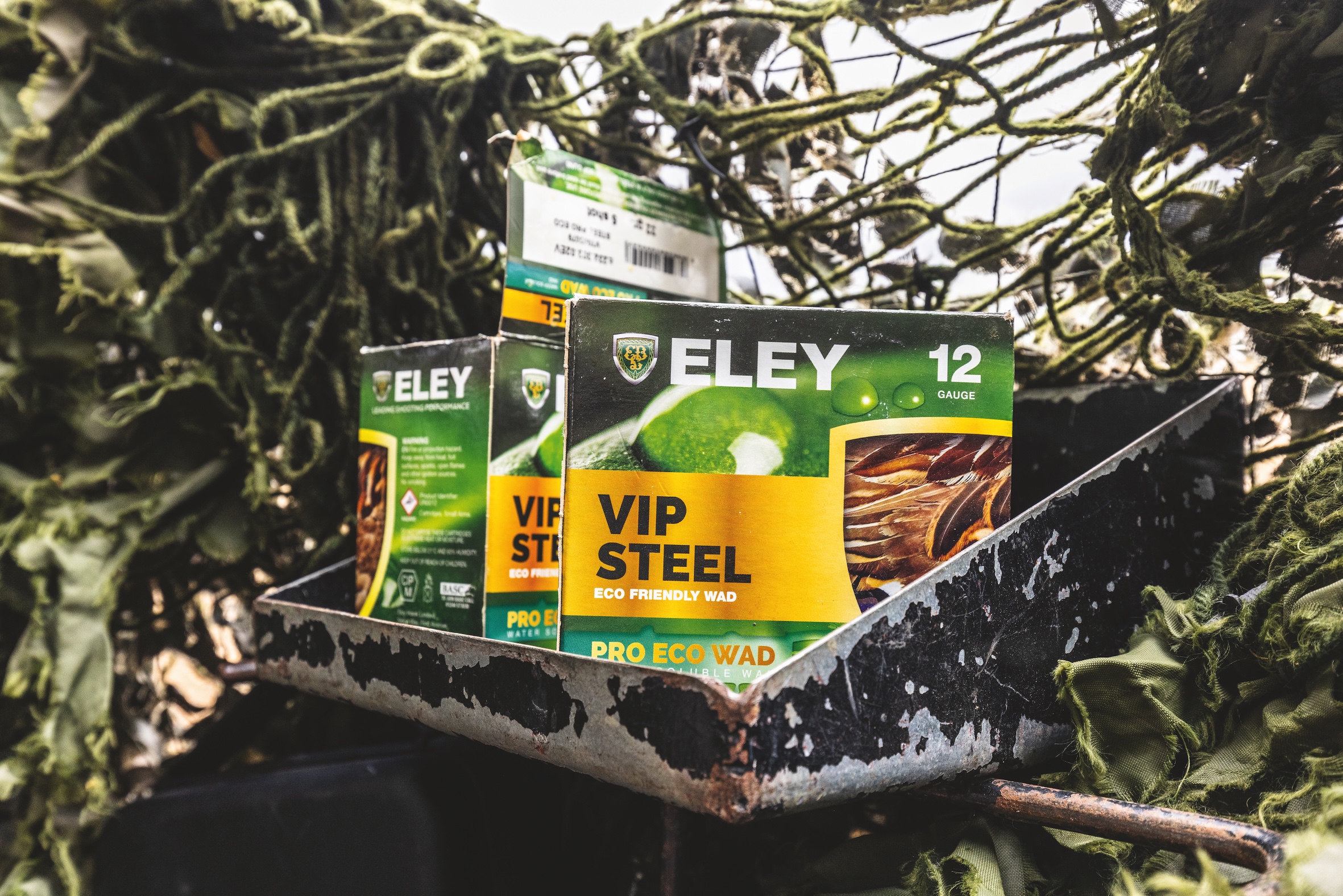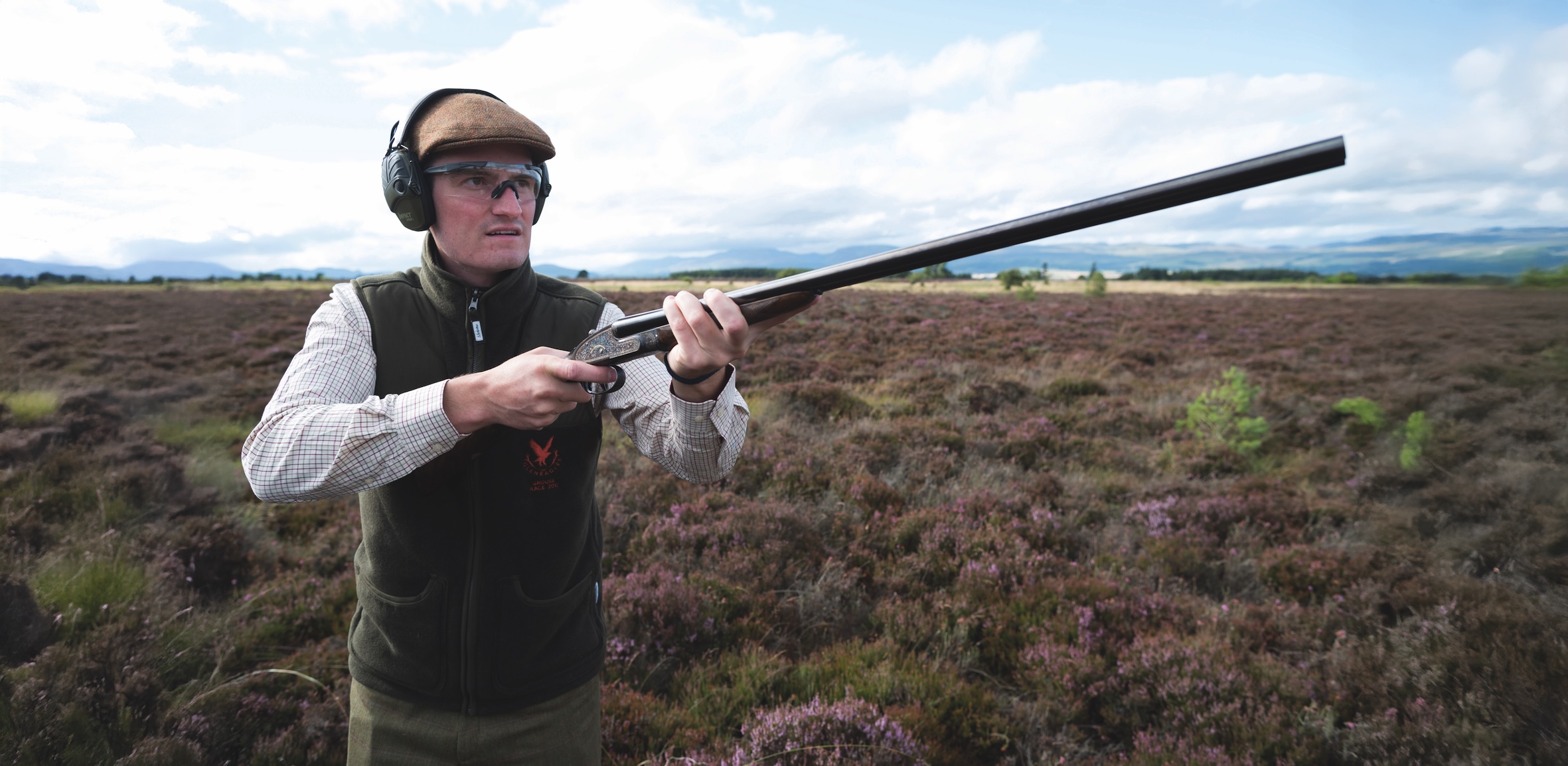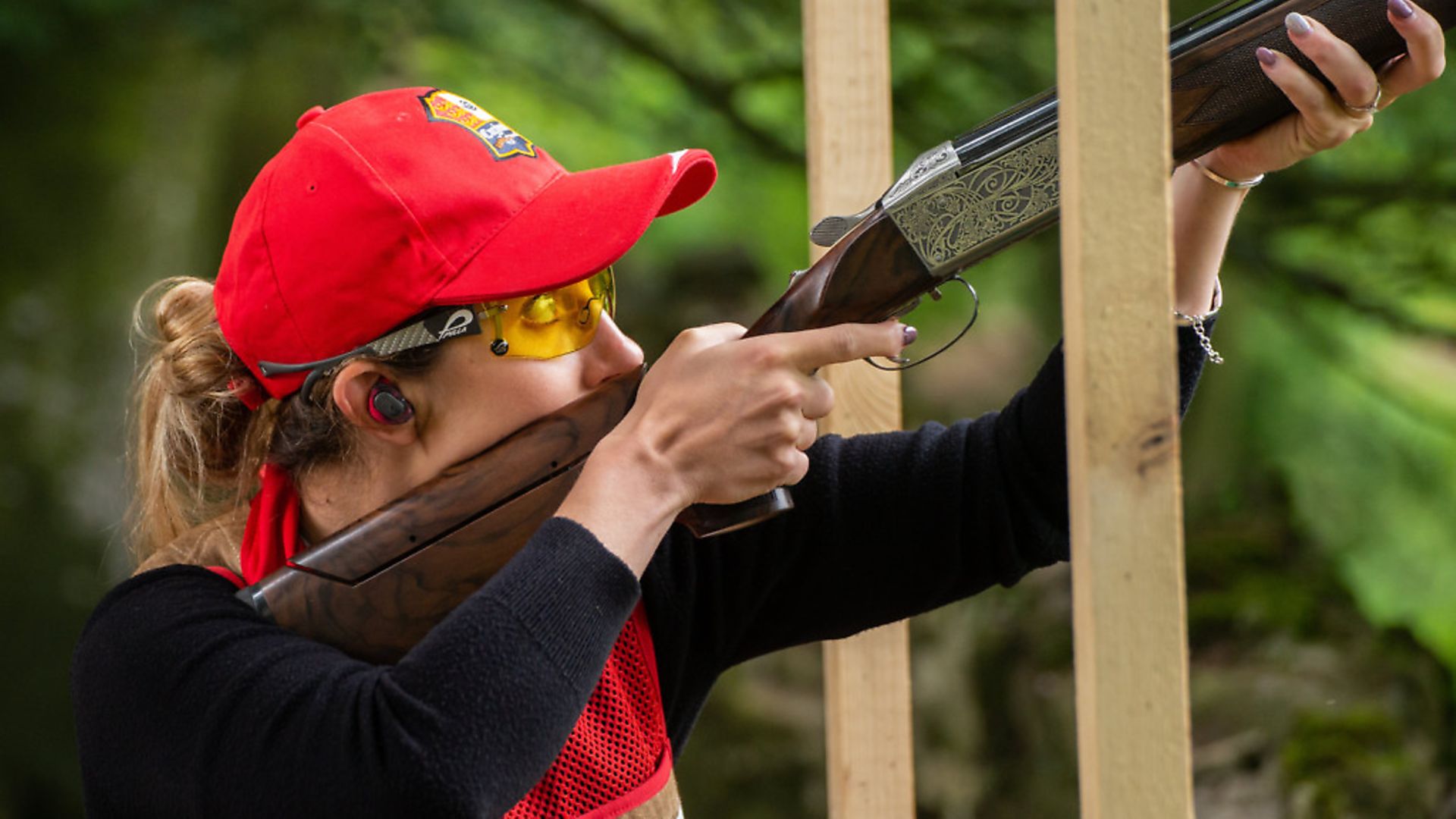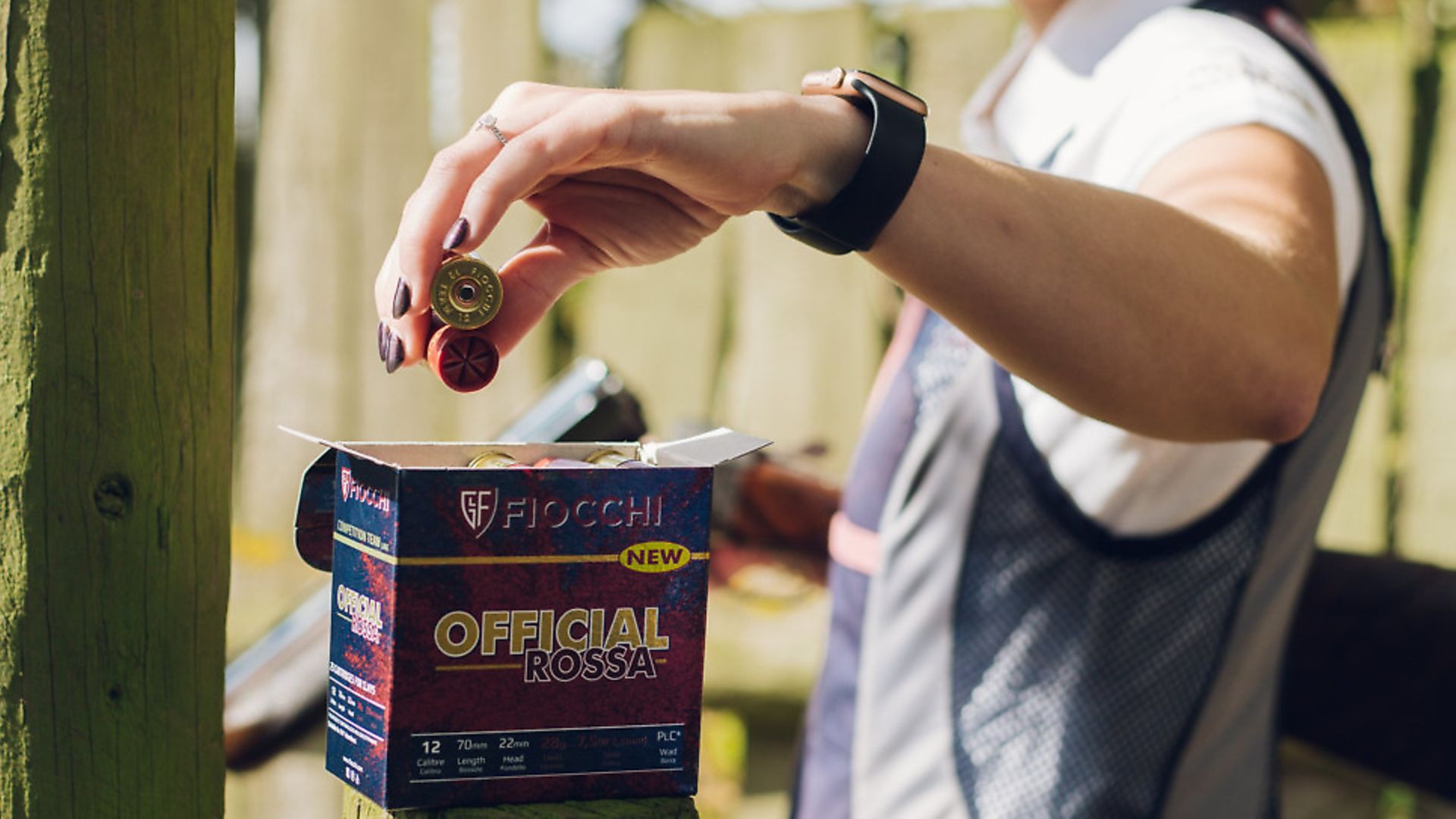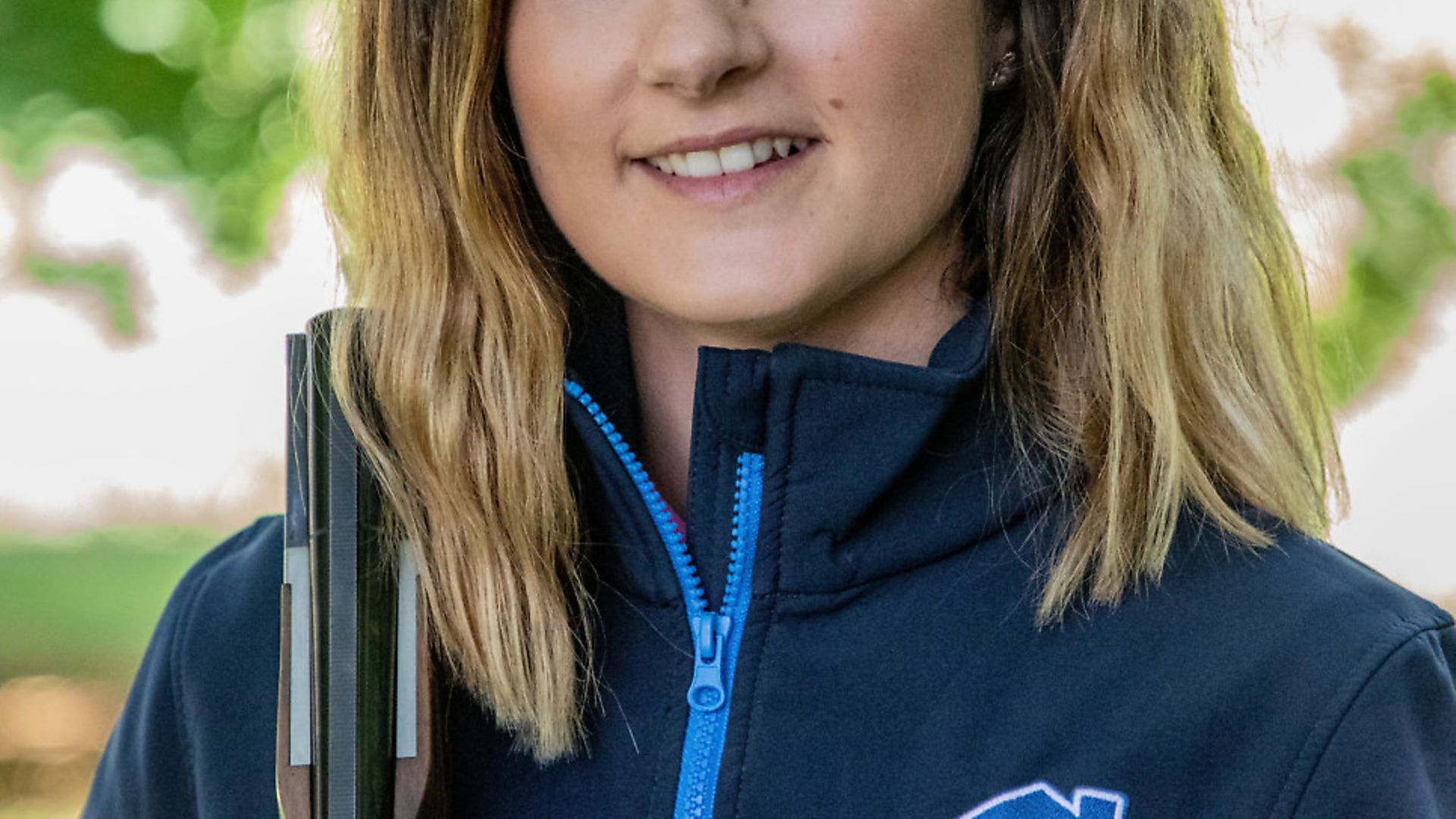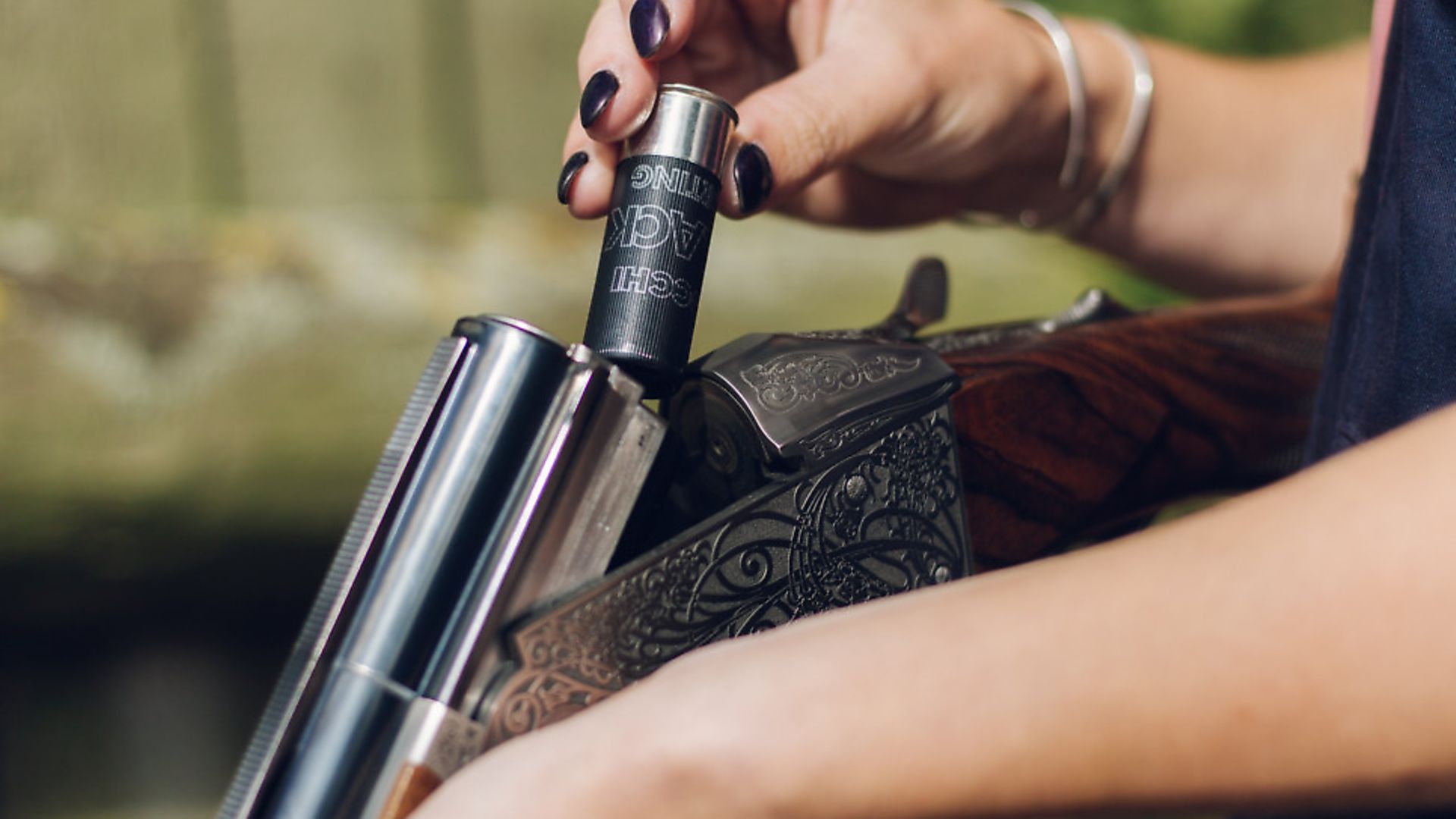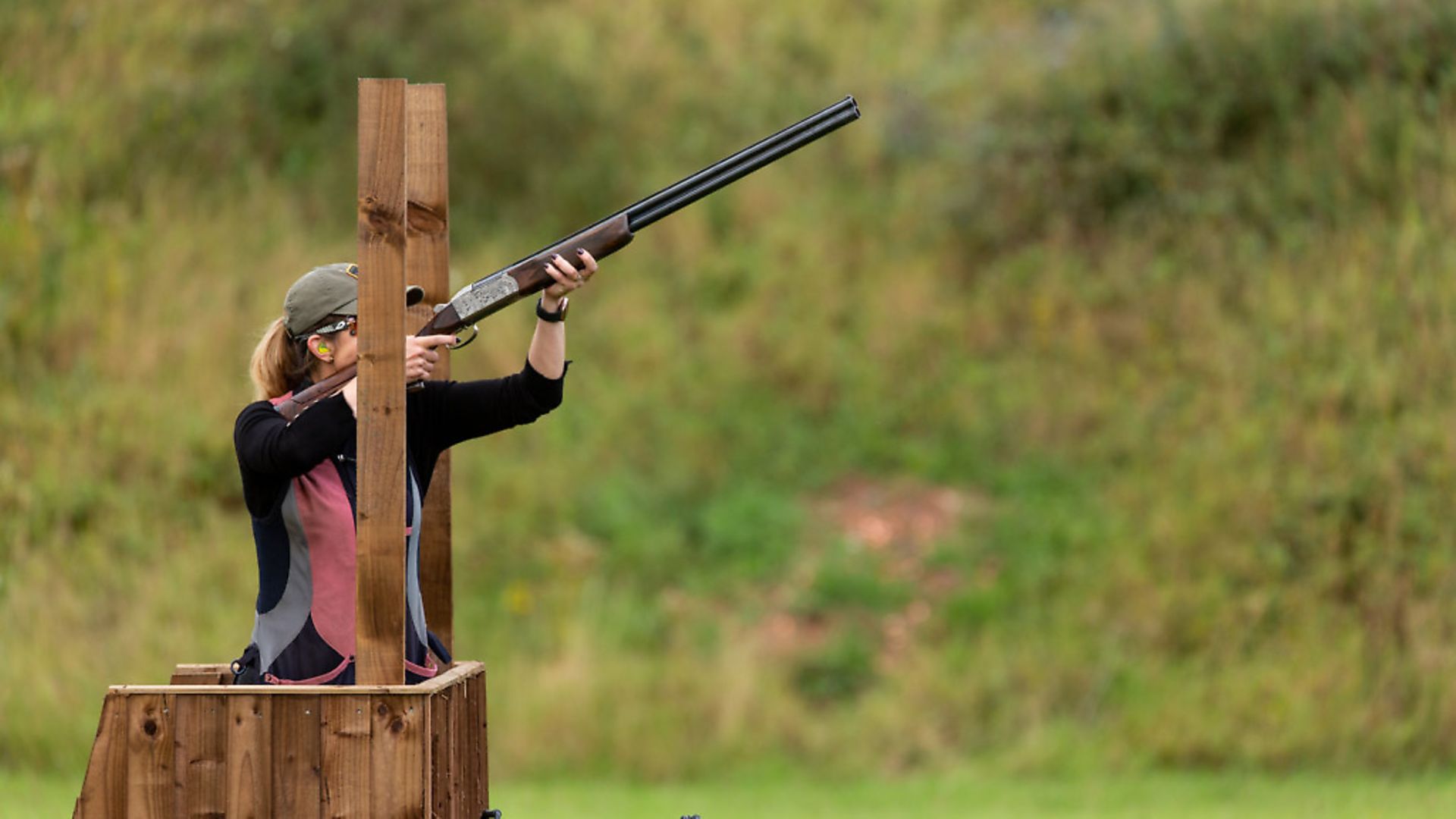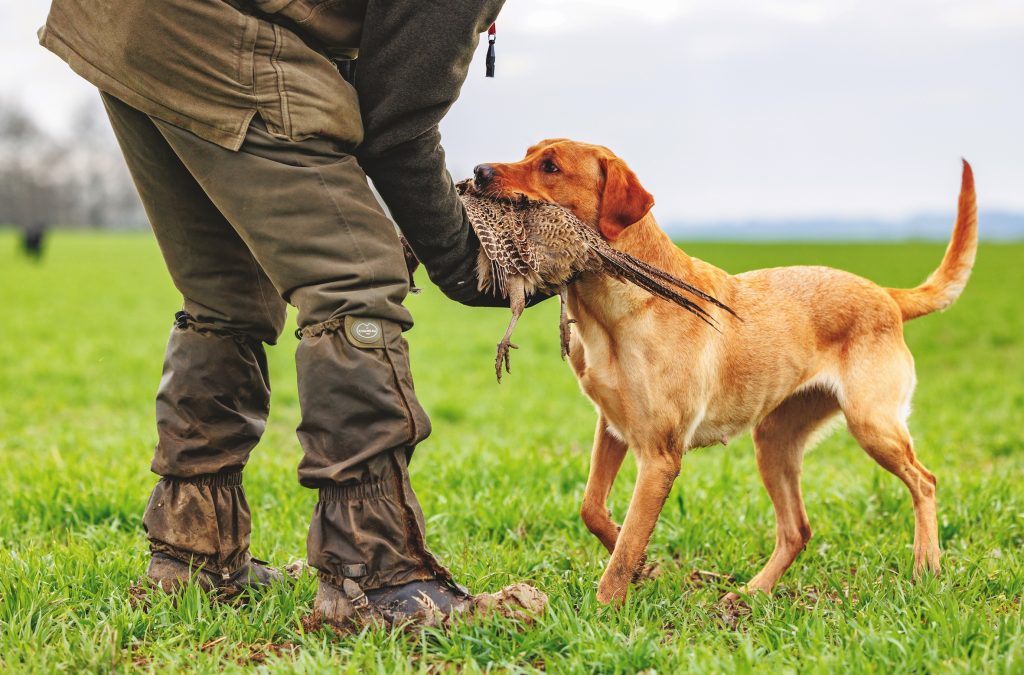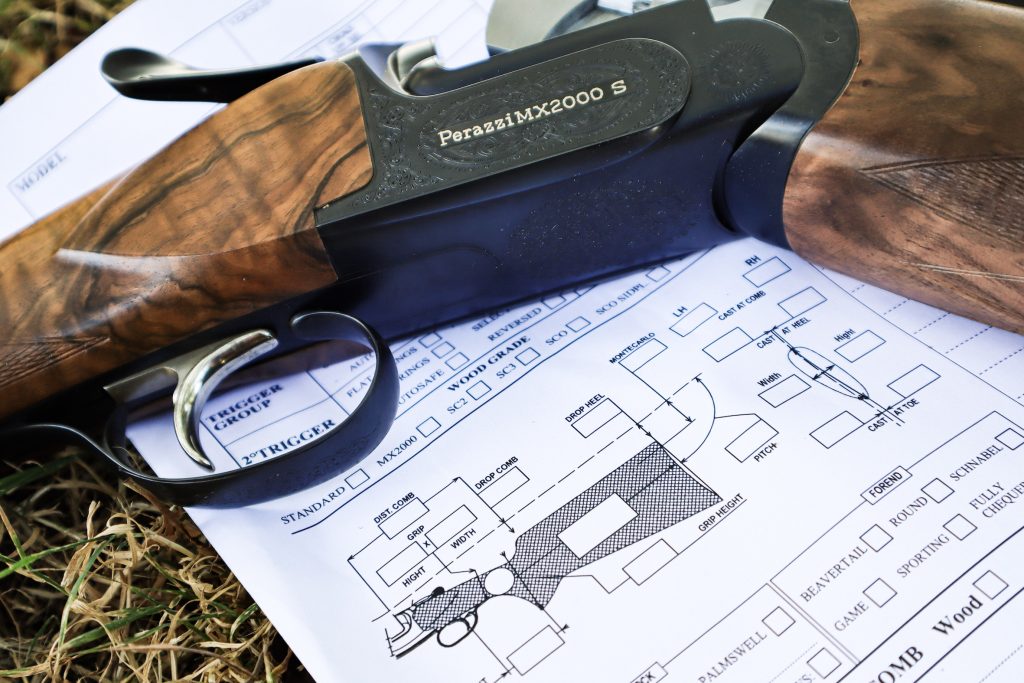Interview: Sporting star Hannah Gibson
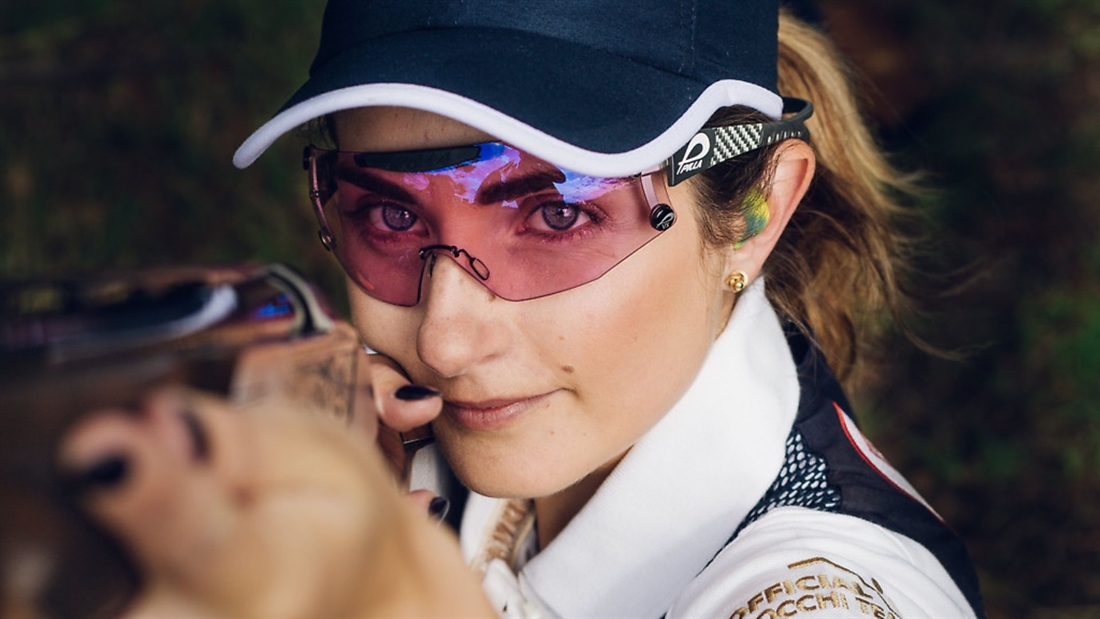
Sporting clays superstar Hannah Gibson talks to Emily Damment about her journey so far, how she trains, and who inspired her
I dragged poor Hannah Gibson, recent winner of the British Open Sportrap (Ladies), out to Southdown Gun Club for this interview on what turned out to be the wettest day of the year. It was proper apocalyptic weather – the type of rain that floods roads in seconds and makes you want to turn your car around, cancel all your plans, and stay inside with a snorkel close to hand. Nevertheless, with deadlines looming, I kept quiet and continued as planned. To her credit, Hannah beat me to the shooting ground and obviously had no intention of cancelling; as I’d been led to expect, she was absolutely charming from start to soggy finish.
As a bit of a multi-discipline superstar, she’s not the easiest person to research, so I’d given up scouring previous interviews and competition results, and instead had resorted to calling a few industry mates in an attempt to size up my latest victim. Aside from her obvious talent behind a shotgun, I was told again and again that Hannah was quite simply a lovely person, and that I would no doubt like her immensely. Happily, they were absolutely correct, and within about three minutes I could completely understand why Hannah seems to be so univserally liked and highly regarded by everyone who crosses her path. Once again, I was clearly in for a great morning away from my laptop. Happy days!
As the rain lashed relentlessly at the windows of the clubhouse, we settled down with hot coffees to chat about Hannah’s career, her life outside of shooting, and what her hopes and dreams are for the future…
CS: How did you get into shooting in the first place?
HG: As a youngster, I played a lot of different sports – badminton, cricket, swimming. My dad shot clays competitively and I used to attend all the members’ BBQs and stuff at Northall, which is where he shot. It was the home of Charlotte Kerwood, who won Commonwealth gold, and her success made me really want to have a go at it.
We also used to go beating as kids, and I remember being stood with my grandad on beaters’ day, and there was this lad about two years younger than me who kept cutting me off and shooting the birds before I’d even had a chance… I said to my grandad, “I’m not having this, I want to be better than the boys!”. It just brought out my competitive nature. I was about 12 when I really got into it, and about 16 when I went down the competitive route.
CS: Which discipline did you start with and how did that evolve?
HG: It started with Sporting. At the time, I played county badminton, so first thing on a Saturday morning Dad and I would pop up to Northall, have a round of Sporting, and then I’d go to the leisure centre for three hours of badminton. Saturday mornings in our house were hectic!
When I was 16, Charlotte Kerwood’s dad, Dan Kerwood, suggested I had a go at Olympic Skeet, and he then coached me for four years or so. I was 17 when I got my first GB cap, which was definitely a learning curve. I was terrible with nerves – the morning of the competition, I would probably be sick! They told me that I had to shoot a Grand Prix before I shot the World Championships I’d qualified for, so we went out to Slovenia to shoot this Grand Prix, and I remember walking into this big glass clubhouse, and all the teams were there doing their stretches, and I just remember thinking, oh my God, what have I got myself into?!
CS: What do you focus on now and what drove that change?
HG: I now focus on Sportrap and Sporting, with a bit of Compak, a bit of FITASC… all those core Sporting disciplines. To begin with, shooting Olympic Skeet was fine – I was at college, I had a bit more time. As soon as I went into work though, my parents said: “We’ve supported you up to this point with your shooting, now you’re working you can start to pay for it yourself.” It’s not a cheap sport, and I was on an apprenticeship wage at the time, plus completing the apprenticeship course at the same time, and trying to afford the trips abroad to compete and everything else. I just couldn’t manage it all. My shooting wasn’t progressing, and it felt like I was spending all my money and all my holiday on something that actually, after every selection shoot, I was in tears about. So, I put the gun away in the cabinet! It was my dad who eventually said, “Come on, let’s go back to doing a bit of Sporting together and just enjoy it again,” and that’s what I’ve done!
CS: You recently won the British Open Sportrap. Well done! What’s your best, most memorable win, and why?
HG: For me it was the British Open in 2016 – it feels like a really long time ago now! It was my first major win. I’d shot the World Sporting a few months before. My dad and I never argue about shooting, and at this competition everything was going really well for the first 50. Then I had a bit of a wobble, and I acted quite frankly like a spoiled little brat, and my dad couldn’t believe it! He was sort of saying, “What are you doing? You’re just throwing this away!”
I just totally let my misses get to me, and so I sort of arrived at the Open a few months later having dealt with that huge learning curve, and it just all came together. The Open cup itself just has so much history on it. It’s quite interesting to look back through the history of women in our sport, and to see names like fellow Olympic Skeet shooter Pinky Le Grelle. It’s just quite cool to be on that cup with those sorts of names.
CS: How was lockdown, and how has your competitive season been since?
HG: I literally just put my gun in the cabinet and left it there! If anything, it did me good, because instead of going into the season working on the actual element of shooting, if you know what I mean, it gave me time to think about the other stuff that I maybe don’t have the time for usually.
I’m one of these really sad people – I have a journal, and every time I shoot, I write down how it went to see if I can pick up any patterns. I did it religiously when I shot OS, but I was a little bit lazy with it when I came back to Sporting. In the last year, I thought to myself, come on, there are things creeping in, and you keep mentioning them, so maybe if you actually write them down you might do something about them! So, lockdown gave me a chance to think about those things, along with the mental aspect of shooting… basically the things you need to address that don’t involve pulling the trigger!
CS: What does your training schedule look like?
HG: I’m one of these people who doesn’t tend to shoot too much, so after the British my gun goes away until January basically – I’m a bit of a fair weather shooter! I usually spend the whole of January out in the US with work, so it’s about life balance too…
With training, it really depends how I’ve been getting on. Because I’ve been doing this journal, I can see certain things that are cropping up and train accordingly – so I might think, this weekend I’ll go and shoot 100 ABT to solve this particular issue, and next weekend I’m going to go and shoot some Skeet because I think my timing needs working on… so there’s been a lot more structure involved in it.
Before, there were so many competitions on, and two years ago I got totally swept up in it – I didn’t even have a spare weekend to clean my house! So, I scaled it back a bit, and I now cherry pick the ones I really want to do rather than just shooting for the sake of it. Other than that, I shoot once or twice a week, and try and do some sessions in the gym to build up some strength too.
CS: Outside of shooting, what’s your job and do you have other hobbies?
HG: I work for Spartan Precision Equipment, which is awesome but absolutely mad! I started there two years ago for a bit of admin help, and I’m now in charge of the sales. I love the fact that I’m involved in the shooting industry. It works well because clay shooting and shotguns are my hobby, my passion, and rifles are more my work, so it’s nice to keep that difference.
In terms of hobbies, I still play some badminton for fun and I spend time in the gym too to maintain fitness and build strength.
CSW: ho are your shooting icons – who inspired you?
HG: When I first started, it was definitely Charlotte Kerwood and Cheryl Hall. I remember shooting against Cheryl at one of the Countryman Fairs where they used to do the Mitsubishi Grand Final. She had just come back from a huge competition that she had won outright, and I remember thinking that was pretty cool – that a woman had beaten all those men!
Some of the American shooters are right up there too – Desi (Desirae Edmunds) has been shooting amazingly, and then you obviously have the likes of George Digweed and Richard Faulds, who for the last 30 years have just been hammering it out! It’s just incredible!
I always say that I think in shooting we’re lucky because we can go to a Sunday shoot, bump into George or Richard, and you may have just started out but they’ll still give you the time of day, they’ll still let you speak… you can’t do that in many other sports. I remember going to a sports personality thing, and I was on a table with some of the young swimmers. Mark Foster, who was Olympic gold medallist at the time, was hosting it. And the look on these kids’ faces was just, “Wow! My idol is here!” Well, we get to do that every Sunday!
CS: If you could spend the day with one character from the shooting world, who would it be?
HG: That’s a tricky one! There are so many different characters in this industry, which is something that I love about game shooting in particular. For example, one of our old family friends, John Blaker, who is in his 80s now, has just got so many stories, he’s just hilarious! He’s probably the only person that I don’t mind if he wipes my eye, because if I was shooting as well as him at 83, I’d be chuffed! Sometimes it’s the people you least expect that have the best stories. So, I guess he’s one of those people that I’d always just be happy to spend a day with at any time!
CS: What are your goals and plans for the future?
HG: Last year, I dabbled in FITASC a bit, and it knocked my confidence because I wasn’t really in the right mindset to try a new discipline. This year, I know what I’m going to do, I’ve got a structure in my head of the training I want to focus on, and I’m going to shoot a bit of FITASC. For me, the ultimate goal is to come away with a world title at some point, but also just to keep enjoying it.
CS: What’s in your kit bag, and what makes you choose and stick with a brand?
HG: I’ve been shooting my Krieghoff for about six years now after shooting one at a try day at Brook Bank, and I’ve been part of the sponsorship team for about three years now. I shot Fiocchi before I was sponsored by them too – for me, brand loyalty goes a long way.
Fiocchi have supported me from the start, and Matt and James are such great guys. There is never any stress with them and they are fab to work with!
I shoot Fiocchi F-Blacks 8½ at everything, but for the longer ones I now have the Fiocchi Rossa in my bag after trying them out and getting on with them really well. I don’t want to be kicked about too much, so I’m always looking for something fairly soft, and something consistent.
I’m one of these people that likes to keep things as simple as possible – I don’t really like change! Basically, if something works, and I have confidence in it, I’ll keep using it. Sometimes I get offered things, but I’m very much of the mindset that if I don’t believe in a product, I won’t take it – and I’d rather have that reputation for being honest with brands. Regardless of sponsorship deals, I would still shoot the Krieghoff and the Fiocchi!
CS: We’ve seen a big surge in the number of women shooters in recent years. How important are they to the future of the sport and how else can we bolster it?
HG: I think I was very lucky with where I started at Northall, because there were several women who were shooting there around the time I started. That club, for the time, had a lot of women there. It was only really when I started going to other grounds that I realised that wasn’t really normal! So, it’s been great to see more women coming into the sport, thanks to some of the all-women clubs – in order for the sport to continue, we need these women, and they are still the minority.
I think another big thing is to make it more acceptable for the kids to get involved as well, because it is a really fun and safe environment. When youngsters go from Juniors to Seniors, you start seeing them drop off the radar, and I think it would be good to have some programmes that just get those numbers up really. Northall used to run free have-a-go days – so anybody could come along, have a go for free, and just get onto the ground to see what it’s all about. That’s the type of thing we need to do more of, along with perhaps sourcing kids from other sports, working with clubs to give them the opportunity to try it… it is still difficult with the cost element though. It’s a tricky one!
CS: Finally, what’s your favourite cheese?
HG: Ohhh, well, I do love a good cheddar!
Hannah is sponsored by Krieghoff, Fiocchi and Full House Restaurants


